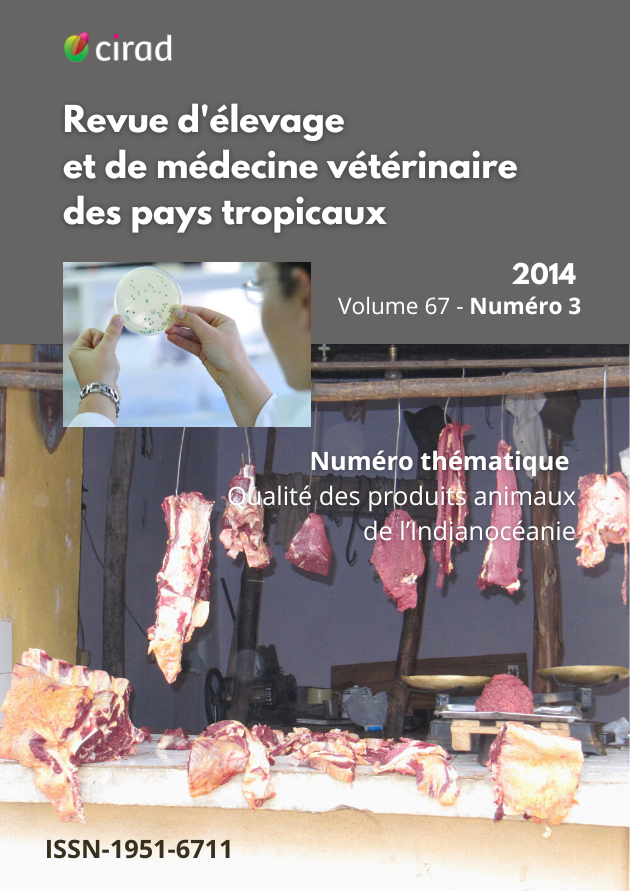Residues of synthetic hormones in pork, Madagascar
DOI:
https://doi.org/10.19182/remvt.10174Keywords
Swine, Pork, Animal growth promoter, Kidney, Progestogen, Medroxyprogesterone, MadagascarAbstract
In Madagascar, little information is available on drug residues in animal products. Official veterinary services have been recently informed about the misuse of human injectable contraceptives in pig farms. Farmers and local animal health workers have been suspected of treating pigs for growth promotion and of using human progestins, especially medroxyprogesterone acetate (MPA), as a chemical alternative method for castration of sows that are then fattened before culling. Indeed, MPA may arrest the onset of farrowing and induce post-lactational anestrus in sows.
Because the use of synthetic hormones in pig husbandry is considered a fraud by the Malagasy legislation, an exploratory study was carried out to confirm these suspicions and investigate the main molecules concerned.
We investigated 80 pigs slaughtered in seven Malagasy abattoirs and raised in eight (out of 22) Malagasy regions (i) to confirm the contamination of carcasses by anabolic hormones by liquid chromatography coupled to mass spectrometry (LC-MS/MS), (ii) to identify the concerned molecules, and (iii) to explore consumers’ exposure to hormone residues. Only adult sows were sampled considering that chemical castration with progestogens was the most common hypothesis of misuse of synthetic hormones in the field.
The screening of the 80 kidney-fat samples did not reveal residues of progestogens other than MPA. MPA-positive samples were detected in 10 out of 15 districts (66.7%), and in all eight surveyed regions except one (87.5%), Diana Region in Northern Madagascar. Our results revealed heavy contamination of pork products by synthetic hormone residues; its prevalence was high considering that such residues are not supposed to occur according to the Malagasy legislation. Investigations by Malagasy veterinary services revealed that farmers and animal health workers purchased syringes of progestogens (Confiance™, Pfizer). These low-price progestins are easily available in private local dispensaries and basic health centers (public sector).
Without any control, farmers can easily administer MPA to pigs. It has thus become urgent to launch public-awareness campaigns and improve control within the sectors of animal production and public health over the entire country.
Downloads
Downloads
-
Abstract1359
-
PDF194
Received
Accepted
Published
How to Cite
Issue
Section
Categories
License
© V.Porphyre et al., hosted by CIRAD 2014

This work is licensed under a Creative Commons Attribution-NonCommercial-ShareAlike 4.0 International License.






